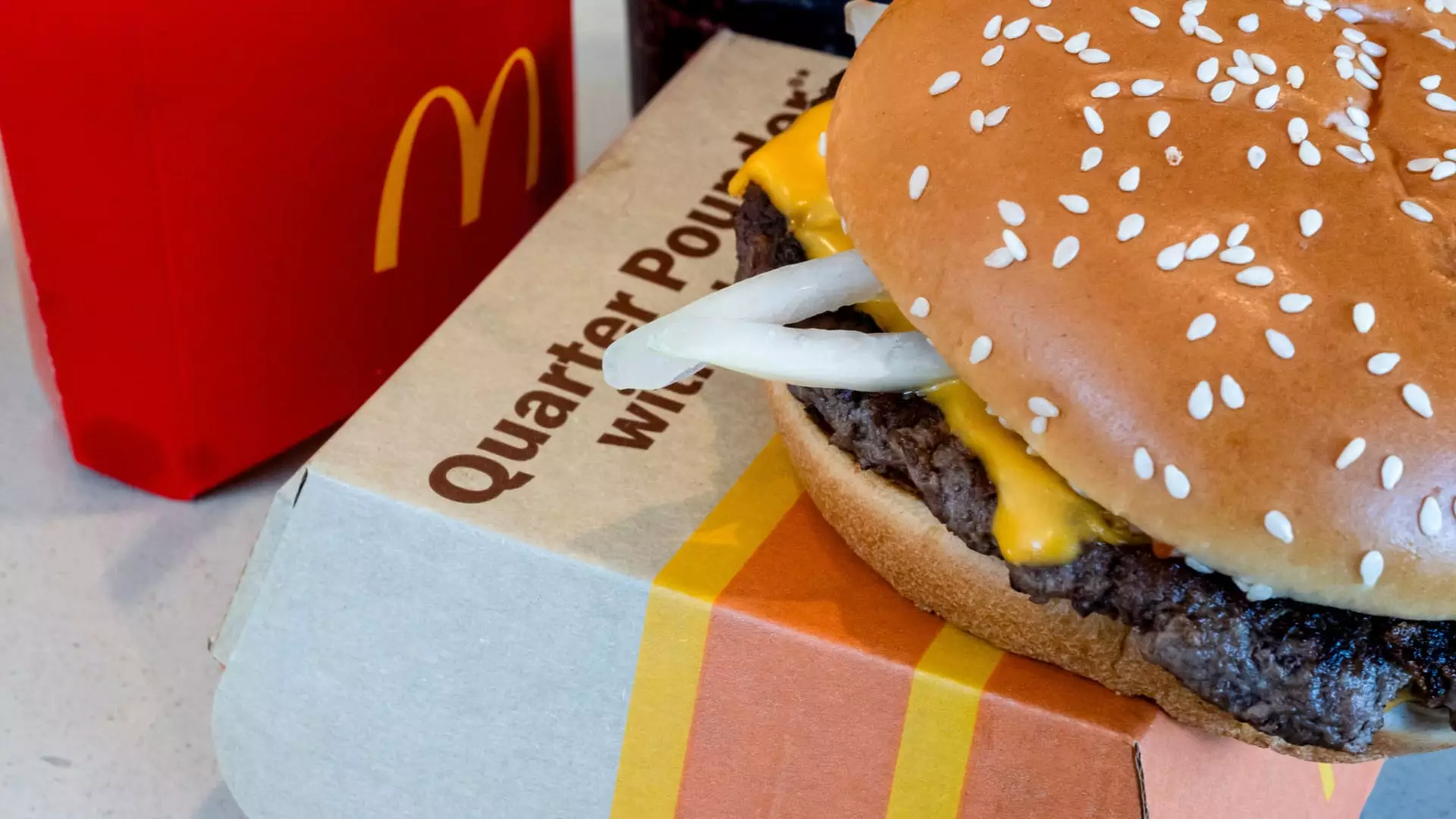The fast-food chain McDonald’s is currently grappling with a significant public health crisis as the Centers for Disease Control and Prevention (CDC) investigates a deadly outbreak of E. coli linked to its popular Quarter Pounder. As reports have emerged of 75 cases across 13 states, the implications for the brand and its operations could be severe. This situation not only raises questions about food safety and industry accountability but also the trust consumers place in one of the world’s most recognized brands.
As of now, the CDC has documented 22 hospitalizations and one tragic death of an older adult in Colorado connected to the outbreak. The cases of E. coli infection span a wide age range, with individuals from 13 to 88 affected. Alarmingly, two patients developed hemolytic uremic syndrome, a serious condition that can lead to kidney failure. The CDC’s ongoing investigation suggests that the number of actual cases may be much higher than reported due to many individuals not seeking medical attention or undergoing testing for E. coli. Historically, it can take weeks to confirm connections between individual infections and larger outbreaks, suggesting that the current situation might continue to evolve.
McDonald’s response thus far has been to remove slivered onions—identified as a potential source of the E. coli—from their stores in the affected regions, including Colorado and several surrounding states. The company’s decision to halt the distribution of this ingredient reflects an urgent need to contain the outbreak’s spread before it worsens.
In light of the outbreak, McDonald’s shares experienced a 2% drop, with a cumulative decline of 6% since the CDC’s first announcement, when the case count was reported at 49. Analysts are observing closely how the outbreak might affect consumer traffic, particularly since the fast-food market has already been struggling with diminished sales. As price-sensitive consumers reconsider their dining habits, the added complication of a food safety crisis may further deter visits to the chain.
Despite these troubling developments, McDonald’s has yet to comment comprehensively on the situation. The company’s lack of expansive, rapid communication can be troubling for consumers and investors alike as they seek assurance about the safety of menu items. Public relations repercussions from foodborne illness outbreaks can linger, regardless of whether the crisis escalates into a more severe situation.
Supplier Accountability and Industry Implications
The CDC’s investigation has narrowed down on California-based Taylor Farms, identified as the supplier of the suspected slivered onions. In response, Taylor Farms issued a recall on four of its raw onion products due to suspected E. coli contamination. This incident underscores the intricate network of suppliers in the fast-food industry and raises questions about how well safety standards are maintained throughout various tiers of food production.
Moreover, other fast-food establishments such as Burger King, KFC, and Taco Bell have responded preemptively by removing onions from their menus, indicating that the unrest surrounding food safety concerns is not limited to McDonald’s. These chain reactions reflect an industry-wide anxiety about consumer health and how interconnected food suppliers can impact numerous establishments simultaneously.
Navigating the Future: Consumer Trust and Brand Management
Looking ahead, McDonald’s is tasked with addressing both immediate safety concerns and longer-term customer trust. Fast food operates in a highly competitive environment where reputations can be quickly tarnished by health scares. To reassure customers, McDonald’s must project transparency about their safety protocols and provide clear updates regarding their response efforts.
The upcoming third-quarter earnings report will further illuminate the potential effects of the outbreak on McDonald’s financial health. Analysts are projecting modest same-store sales growth of only 0.5%, a figure that may fluctuate further depending on consumer response during this crisis. Experts believe that barring a more severe fallout, the damage to McDonald’s brand might be minimal, drawing upon past instances such as the E. coli outbreak linked to Wendy’s two years prior.
While the immediate outlook for McDonald’s amid this E. coli outbreak appears daunting, the company has room for strategic recovery and brand reaffirmation if it manages the current crisis with diligence and transparency. The key will be maintaining consumer trust while ensuring rigorous safety measures in their food supply chain to safeguard against future incidents.



Leave a Reply